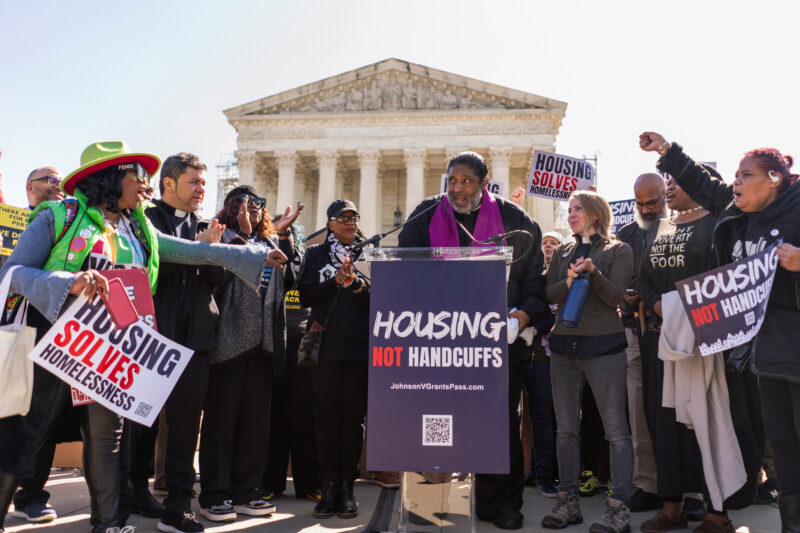Supreme Court Seems Poised to Allow Local Laws That Penalize Homelessness
Share
Explore Our Galleries
Breaking News!
Today's news and culture by Black and other reporters in the Black and mainstream media.
Ways to Support ABHM?
By Abbie VanSickle, The New York Times
A majority of the justices appeared skeptical of courts wading into the thorny policy questions around when local governments can punish people for sleeping and camping outdoors.

A majority of the Supreme Court appeared inclined on Monday to uphold a series of local ordinances that allowed a small Oregon city to ban homeless people from sleeping or camping in public spaces.
The justices seemed split along ideological lines in the case, which has sweeping implications for how the country deals with a growing homelessness crisis.
In a lengthy and, at times, fiery argument that lasted almost two and a half hours, questioning from the justices reflected the complexity of the homelessness debate. They weighed the status of poverty and the civil rights of homeless people against the ability of cities to clear public spaces like parks and sidewalks to address concerns about health and safety. They wrestled with what lines could be drawn to regulate homelessness — and, crucially, who should make those rules.
The conservative majority appeared sympathetic to arguments by the city of Grants Pass, Ore., that homelessness is a complicated issue best handled by local lawmakers and communities, not judges. The liberal justices strongly resisted that notion.
Learn what Milwaukee is doing about its homeless population in this Breaking News article.
Find even more Breaking News here.









Comments Are Welcome
Note: We moderate submissions in order to create a space for meaningful dialogue, a space where museum visitors – adults and youth –– can exchange informed, thoughtful, and relevant comments that add value to our exhibits.
Racial slurs, personal attacks, obscenity, profanity, and SHOUTING do not meet the above standard. Such comments are posted in the exhibit Hateful Speech. Commercial promotions, impersonations, and incoherent comments likewise fail to meet our goals, so will not be posted. Submissions longer than 120 words will be shortened.
See our full Comments Policy here.